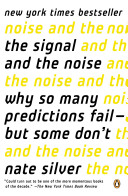Hedgehogs Do Worse the More Information They Have
Academic experts like the ones that Tetlock studied can suffer from the same problem. In fact, a little knowledge may be a dangerous thing in the hands of a hedgehog with a Ph.D. One of Tetlock’s more remarkable findings is that, while foxes tend to get better at forecasting with experience, the opposite is true of hedgehogs: their performance tends to worsen as they pick up additional credentials. Tetlock believes the more facts hedgehogs have at their command, the more opportunities they have to permute and manipulate them in ways that confirm their biases. The situation is analogous to what might happen if you put a hypochondriac in a dark room with an Internet connection. The more time that you give him, the more information he has at his disposal, the more ridiculous the self-diagnosis he’ll come up with; before long he’ll be mistaking a common cold for the bubonic plague.
But while Tetlock found that left-wing and right-wing hedgehogs made especially poor predictions, he also found that foxes of all political persuasions were more immune from these effects.20 Foxes may have emphatic convictions about the way the world ought to be. But they can usually separate that from their analysis of the way that the world actually is and how it is likely to be in the near future.
Hedgehogs, by contrast, have more trouble distinguishing their rooting interest from their analysis. Instead, in Tetlock’s words, they create “a blurry fusion between facts and values all lumped together.” They take a prejudicial view toward the evidence, seeing what they want to see and not what is really there.
You can apply Tetlock’s test to diagnose whether you are a hedgehog: Do your predictions improve when you have access to more information? In theory, more information should give your predictions a wind at their back—you can always ignore the information if it doesn’t seem to be helpful. But hedgehogs often trap themselves in the briar patch.
Notes:
They selectively take in the information to reaffirm their biases.
Folksonomies: bias expertise cognitive bias
Keywords:
hedgehogs (0.979622 (negative:-0.490213)), Tetlock (0.974832 (negative:-0.292985)), Tetlock’s words (0.852380 (neutral:0.000000)), Tetlock’s test (0.839057 (neutral:0.000000)), especially poor predictions (0.809819 (negative:-0.786484)), right-wing hedgehogs (0.776542 (negative:-0.786484)), facts hedgehogs (0.765931 (negative:-0.345568)), Academic experts (0.576633 (negative:-0.574018)), emphatic convictions (0.571240 (negative:-0.613839)), bubonic plague (0.561652 (negative:-0.691933)), political persuasions (0.555383 (negative:-0.613839)), remarkable findings (0.554479 (positive:0.273041)), dangerous thing (0.553162 (negative:-0.446233)), information (0.550173 (negative:-0.378989)), little knowledge (0.549599 (negative:-0.446233)), additional credentials (0.543354 (negative:-0.480516)), prejudicial view (0.538129 (negative:-0.351230)), dark room (0.532478 (negative:-0.895583)), Internet connection (0.532097 (negative:-0.895583)), blurry fusion (0.531212 (negative:-0.577552)), common cold (0.526046 (negative:-0.691933)), briar patch (0.522251 (negative:-0.449810)), foxes (0.461449 (negative:-0.613839)), biases (0.429064 (negative:-0.346999)), way (0.318397 (negative:-0.613839)), world (0.318309 (negative:-0.613839)), analysis (0.316701 (negative:-0.512167)), hypochondriac (0.300398 (negative:-0.895583)), self-diagnosis (0.288258 (negative:-0.447758)), rooting (0.275781 (negative:-0.512167))
Entities:
Tetlock:Person (0.904842 (negative:-0.568690))
Concepts:
Bubonic plague (0.951577): dbpedia | freebase | opencyc
Black Death (0.933702): dbpedia | freebase | yago
Plague (0.699555): dbpedia | freebase





